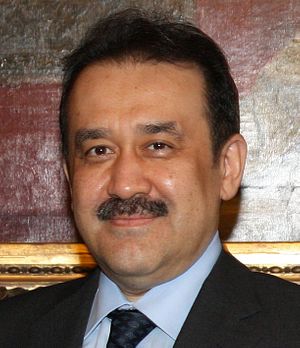The resignation of Kazakhstan’s long-time prime minister this week came as a surprise. The country–despite great economic progress since independence–has fallen victim to the regional economic hangover induced by a crash in oil and commodities prices and Russia’s sanctions-induced doldrums. Increasing public frustration–exacerbated by the economic situation–has been underscored by unprecedented public protests.
Karim Massimov has been prime minister for more than seven years, split between two terms: 2007 to 2012 and April 2014 to September 8, 2016. In between he served as head of the presidential administration.
The end of Massimov’s prime ministership has been characterized in several different ways in the media, though tilting toward “dismisal” over “resignation.” Observers view his dismissal and reappointment to chairman of the Committee for National Security as a demotion.
In a country that has maintained hero-like worship for its one and only President, Nursultan Nazrabayev, Massimov was one of a handful of politicians whose names were internationally known. Over the years the Kazakh government has worked to sideline politicians who looked likely to build the kind of a following that may present even the meekest challenge to Nazarbayev. The most obvious illustration of this is the case of Mukhtar Ablyazov who went from being a successful businessman to economy minister in 1998, only to fall away from the regime and openly challenge Nazarbayev politically. He’s now mired in a multi-layered corruption scandal and fighting extradition to Russia in France.
RFE/RL linked the sudden decision to reassign Massimov to his recently reinvigorated social media initiatives. “Masimov’s dismissal comes after several months of sudden activity on the Internet that many observers considered to be an (sic) blatant attempt to promote himself across the Central Asian country.”
Masismov, who first appeared on Twitter in March 2011, took a hiatus from the platform in late 2012. He began posting again this summer to what the Akhal-Tech Collective on Global Voices accurately called his “extremely boring Twitter feed.” The normcore tweets had all the personality of a soggy loaf of naan: tweets about marathon traffic, chairing meetings, and various congratulations (miners and oil workers on their professional days) and Kazakhstan’s Olympians.
Massimov, or whoever sent tweets via his account, was clearly not a natural at the medium–meaning his use of it had to have some kind of additional motivation. Increasingly people, including Kazakhs, want access to their government and social media is one method for connecting the government to the people.
The June post on Global Voices asked a good question: “Will the Extremely Boring Twitter Feed of Kazakhstan’s Prime Minister Be Enough to Save Him?” Citing a Forbes.kz column by Dosym Satpayev, the piece highlighted how social media was a window into political struggle. From the Forbes piece:
There was a time when Massimov vacated the information space, so as not to give his opponents a reason to depict him as a “second sun in the sky”. Now the premier feels it is more dangerous to stay silent.
It seems Massimov may have fallen into a classic ‘damned if you do, damned if you don’t’ trap. Being chairman of the Kazakh successor to the KGB is still a notable position, albeit one where silence is preferred. His latest tweet, sent on September 8, simply thanks Nazarbayev for his trust.

































